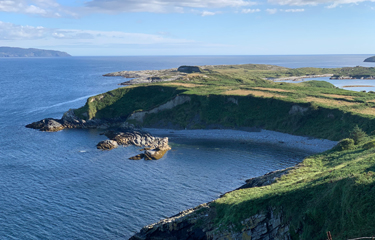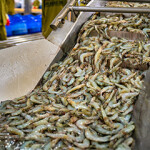Mowi Ireland gets go-ahead for Irish farming license, over NGO objections

Ireland has approved its first new marine salmon farm in 17 years – an 18-cage salmon farm being to be built by Mowi in Bantry Bay, in the country’s south.
The decision, announced at the beginning of July, came more than a decade after Mowi – then Marine Harvest – first applied for the license. It was harshly criticized by environment non-governmental organization Friends of the Irish Environment, which called Ireland’s aquaculture licensing system “broken.”
Ireland’s aquaculture licensing system was upended by a 2007 ruling from the European Union Court of Justice that found that Ireland had failed to apply the Birds Directive and the Habitats Directive (also known as Natura 2000) in coastal areas of conservation – home to 80 percent of Irish marine aquaculture sites – when handing out aquaculture licenses. The ruling forced Irish authorities to go through a program of assessments of the sites. In the meantime, nearly two dozen salmon farms in Ireland have been operating with expired licenses, including 12 operated by Mowi, according to Ireland’s Journal, and new applications were effectively shelved.
In a statement sent to SeafoodSource, Friends of the Irish Environment said the Irish government shouldn’t be issuing more licenses “without fixing the legislation.”
“Both operators and the opponents agree that the current licensing system is not fit for purpose and yet we continue to grant permissions under this infirm legal regime,” the NGO said.
The Irish Agriculture Ministry had originally granted the license – which Mowi first applied for in 2011 – in 2015, but the decision was appealed to Ireland’s Aquaculture License Appeals Board (ALAB) by 14 different parties, including the applicant. Mowi explained it appealed on the basis that “a few minor prescriptive clauses in the license failed to take into account potential future technological developments.”
Asked by SeafoodSource if Ireland’s licensing system is compromised, the Department of Agriculture, Food, and the Marine demurred.
“[The department] considers all applications for aquaculture licenses in accordance with the provisions of the 1997 Fisheries (Amendment) Act, the 1933 Foreshore Act, and applicable E.U. legislation,” it said in a statement. “The licensing process involves consultation with a wide range of scientific and technical advisers as well as various statutory consultees. The legislation also provides for a period of public consultation. In addition, the legislation also provides for an appeal of the minister’s decision to the [ALAB].”
Speaking to SeafoodSource, Mowi Ireland Head of Operations Jan Feenstra said the awarding of the permit was a “very positive step forward for the Irish aquaculture industry.”
“It would not be appropriate for us to comment on the workings of the Department of Agriculture and its various agencies, but I am certain that it is committed to addressing the legacy issues surrounding aquaculture licensing,” Feenstra said. “Modern aquaculture plays an important role in efficient and sustainable food production and its potential is increasingly recognized and encouraged by the E.U.”
One of the key complaints of Irish Friends of the Environment is that the licensing system doesn’t allow for enough punitive action against transgressions committed by license-holders.
“Penalties cannot be graded, leaving the authorities only the option of shutting down farms, which is open to legal challenge,” Friends of the Irish Environment said.
In its statement, the ministry noted the ALAB is “an entirely independent board and decisions in relation to the granting of an aquaculture license by that board are entirely a matter for the board.”
“Given the independent status of the [ALAB] and the fact that there is in this case, currently a three-month window from the date of the [ALAB] decision on 29 June in which that decision can be judicially reviewed, it would not be appropriate for the department to comment further on the matter at this time,” it said.
Bergen, Norway-based Mowi currently operates two organic salmon farms on the western side of Bantry Bay. Mowi currently produces 7,000 MT of Atlantic salmon in Ireland annually, but the company’s Irish aquaculture production is focused on quality rather than scale, Feenstra told SeafoodSource.
“By developing a new site for organic salmon in Bantry Bay, the continuing development of stocking, harvesting, fallowing, and rotation programs can be advanced in compliance with international best practice, thereby securing the long-term future of aquaculture in the area,” he said.
In a separate statement, Mowi said it hoped to expand in Ireland, but that its primary priority is to continue to operate legally and according to best practices in order to ensure the reputation its Irish product has established for quality.
“Irish organic farmed salmon is a premium product in Europe … where it commands a premium on farmed salmon produced elsewhere. The single-biggest issue facing Irish salmon producers today is that they cannot meet the demand for their product,” it said. “This outcome is timely as the Department of Agriculture has received completed license-renewal applications with accompanying EIAR (environmental study) documents from all the Irish finfish industry for all active sea sites. We have been patient and jumped over endless hurdles to provide the decision-makers with all the additional information requested. Let us hope that this will provide some courage for our regulatory authority, which is long overdue to bring this industry’s licensing up to date.”
In a related complaint, environmental groups including Friends of the Irish Environment have claimed the Irish licensing procedure for salmon farms is compromised because of alleged conflicts of interest at the government level. The Irish Department of Agriculture’s licensing division, Marine Institute Ireland – a state agency that provides government and the country’s marine industry with scientific, advisory, and economic development services – and the Sea-Fisheries Protection Authority (SFPA) – the Irish authority for seafood safety and sea-fisheries protection,= – are all controlled by the Agriculture Department's fisheries division, whose key role is also to promote development of the aquaculture industry, the environmental agency noted in its statement to SeafoodSource.
Photo courtesy of John O Callaghan/Shutterstock






Share